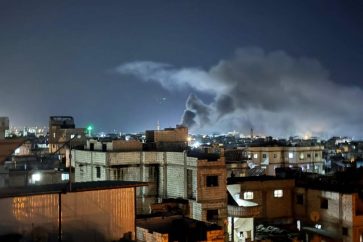Hamas leader in Gaza Khalil Al-Hayya hailed Palestinian people resilience in face of the Israeli brutality throughout two years of genocide.
In an interview with Al Jazeera on Sunday, Al-Hayya affirmed that the Israeli enemy failed to achieve its goals during the two-year war on Gaza.
“Gaza has lost more than 10% of its population as martyrs, wounded, or prisoners, Despite the heavy losses and sacrifices the resistance managed to defend the rights of the Palestinian people,” the top Hamas official said.
“October 7 is the natural result of 77 years of occupation behavior. Therefore, I say the [Op. Al-Aqsa Flood] — despite all the pain of our people, the martyrs, and the prisoners — has moved the Palestinian issue to a new stage and exposed the true face of the occupation.”
Al-Hayya noted that within 72 hours of the ceasefire, Hamas had handed over 20 Israeli captives and 17 bodies out of a total of 28 deceased Israeli hostages.
He said that search for the remaining bodies was ongoing amid difficulties due to heavy destruction in the besieged strip. In this regard, Al-Hayya pointed to coordination between the Palestinian resistance and the ceasefire mediators.
Al-Hayya said that Hamas agreed with Fatah and the other Palestinian factions in principle to establish a technocratic committee to manage Gaza, stressing that an agreement was reached with Fatah on the matter.
He added that the committee would be temporary and should lead to Palestinian elections and the formation of a Palestinian national unity government.
Al-Hayya emphasized once again that Hamas would not give up its weapons except with the establishment of a Palestinian state.
⚡️Hamas leader Khalil Hayya:
Weapons are still being discussed with the factions and mediators, and the agreement is still in its infancy.
Our weapons are linked to the existence of the occupation and aggression. If the occupation ends, these weapons will revert to the state.… pic.twitter.com/RUVZYInEm3
— S2FUncensored (@S2FUncensored) October 26, 2025
Source: Agencies (edited by Al-Manar)




